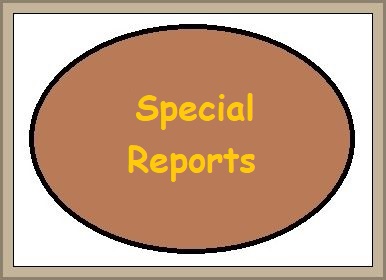 Use and Application of Mulch
MULCH:
* helps suppress weeds and makes them easier to remove
* protects soil from compaction and erosion due to rain
* protects sensitive plants against cold damage
* Add mulch to beds if needed. More than 2" total
depth of mulch is not recommended
-----
* Compost is a mulch containing significant amounts of
decomposed organic matter
* Compost, leaves, and moss, are effective soil builders
* Leaves provide good cover for bare-dirt beds and slopes
* Leaves left in beds can be raked up if they become
unacceptably unsightly after
at least some of the mass breaks down; or, till them back into
the bed in the spring, or add more mulch later over the leaves.
* Keep mulch some inches away from trunks of shrubs and trees.
----------
* For garden area's and closely planted beds,
Compost is a good mulch to improve soil quality
and provide organic nutrients.
* Municipal compost should be a good product.
(It may be initially odorous and
mucky during fall and winter months)
* Compost mixes of variable quality are usually available at
landscape materials outlets. Check for excessive sand and sawdust
in mix.
In Seattle, the cedar grove compost / topsoil mix
is reliably good, (nowadays).
Sav-a-tree in denver has some good products, in bulk.
In bags, i have found ace hardware and Krameria nursery
in Denver to carry some good products. Check labels to
ascertain relative quality of different brands.
----------
* For open bed area's, play area's, trails;
* Arbor chips work well - they can be applied more
thickly than other mulches, but is more time consuming to apply,
and variable in quality.
* play chips can also be used as mulch but it will have
a different appearance and color you may not prefer.
* Coarse bark mulch will last longer than finer bark
but provide less coverage per sq.ft. and
is more time consuming to apply.
* Dyed wood chip mulch if used should be certified
not to contain shredded pallets before using it.
It also may stain clothing, pets, people, etc.
Use and Application of Mulch
MULCH:
* helps suppress weeds and makes them easier to remove
* protects soil from compaction and erosion due to rain
* protects sensitive plants against cold damage
* Add mulch to beds if needed. More than 2" total
depth of mulch is not recommended
-----
* Compost is a mulch containing significant amounts of
decomposed organic matter
* Compost, leaves, and moss, are effective soil builders
* Leaves provide good cover for bare-dirt beds and slopes
* Leaves left in beds can be raked up if they become
unacceptably unsightly after
at least some of the mass breaks down; or, till them back into
the bed in the spring, or add more mulch later over the leaves.
* Keep mulch some inches away from trunks of shrubs and trees.
----------
* For garden area's and closely planted beds,
Compost is a good mulch to improve soil quality
and provide organic nutrients.
* Municipal compost should be a good product.
(It may be initially odorous and
mucky during fall and winter months)
* Compost mixes of variable quality are usually available at
landscape materials outlets. Check for excessive sand and sawdust
in mix.
In Seattle, the cedar grove compost / topsoil mix
is reliably good, (nowadays).
Sav-a-tree in denver has some good products, in bulk.
In bags, i have found ace hardware and Krameria nursery
in Denver to carry some good products. Check labels to
ascertain relative quality of different brands.
----------
* For open bed area's, play area's, trails;
* Arbor chips work well - they can be applied more
thickly than other mulches, but is more time consuming to apply,
and variable in quality.
* play chips can also be used as mulch but it will have
a different appearance and color you may not prefer.
* Coarse bark mulch will last longer than finer bark
but provide less coverage per sq.ft. and
is more time consuming to apply.
* Dyed wood chip mulch if used should be certified
not to contain shredded pallets before using it.
It also may stain clothing, pets, people, etc.
Respectfully, Don
![]()